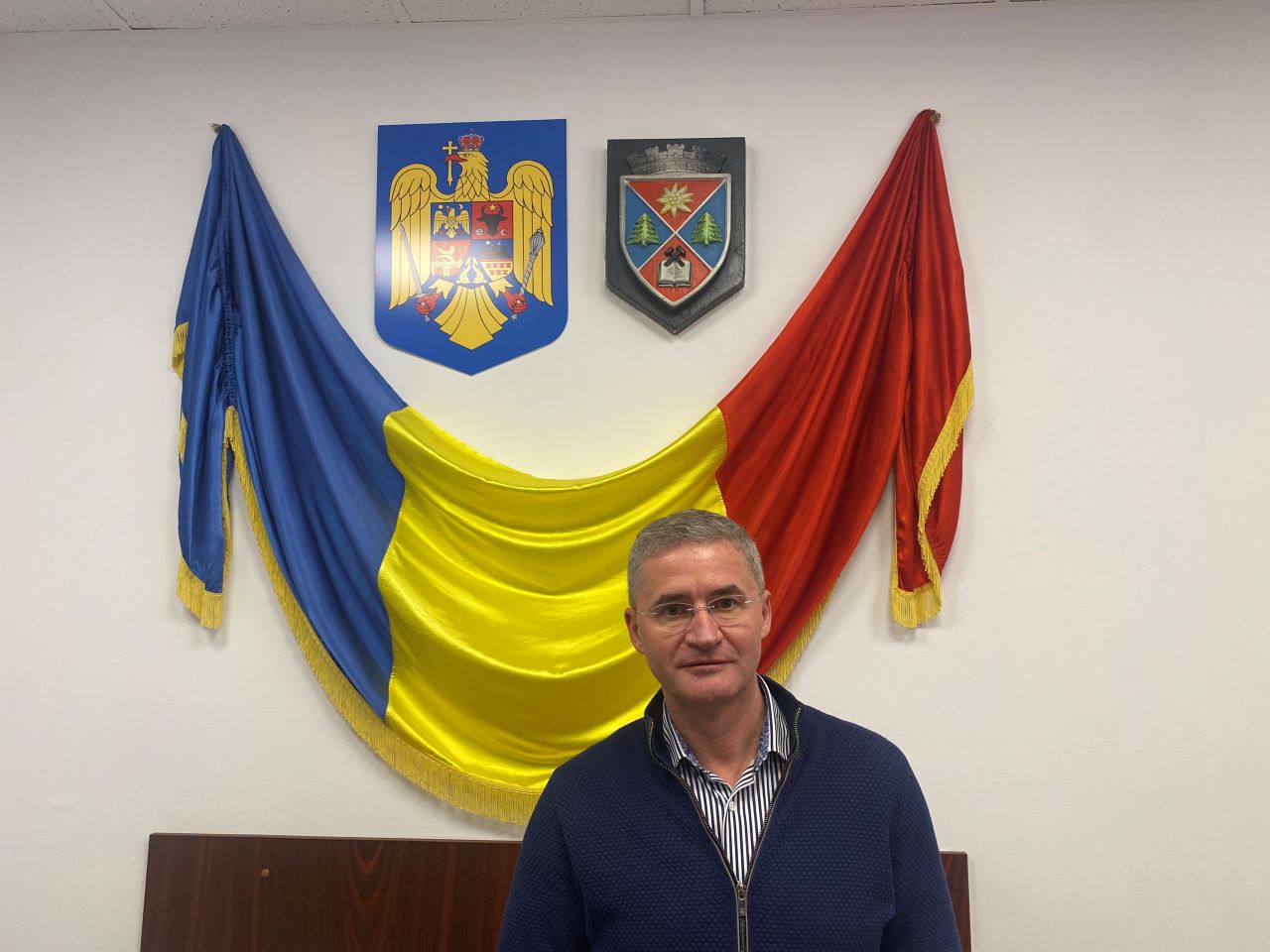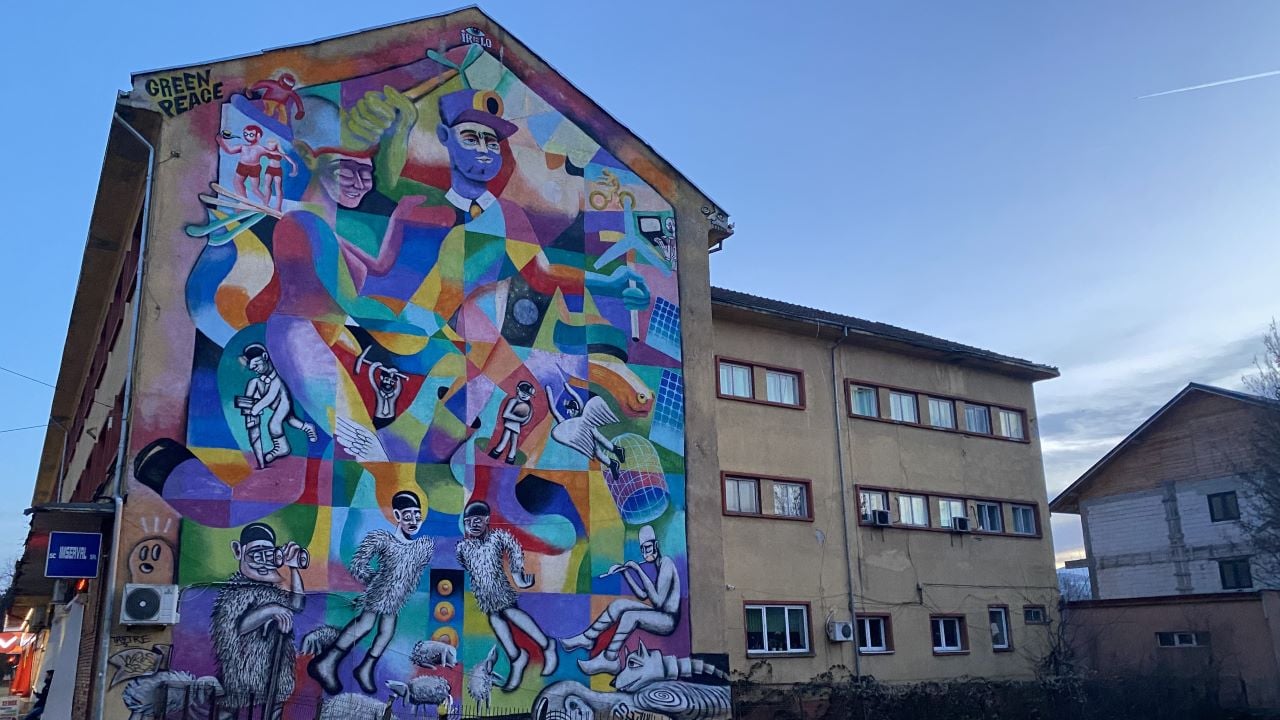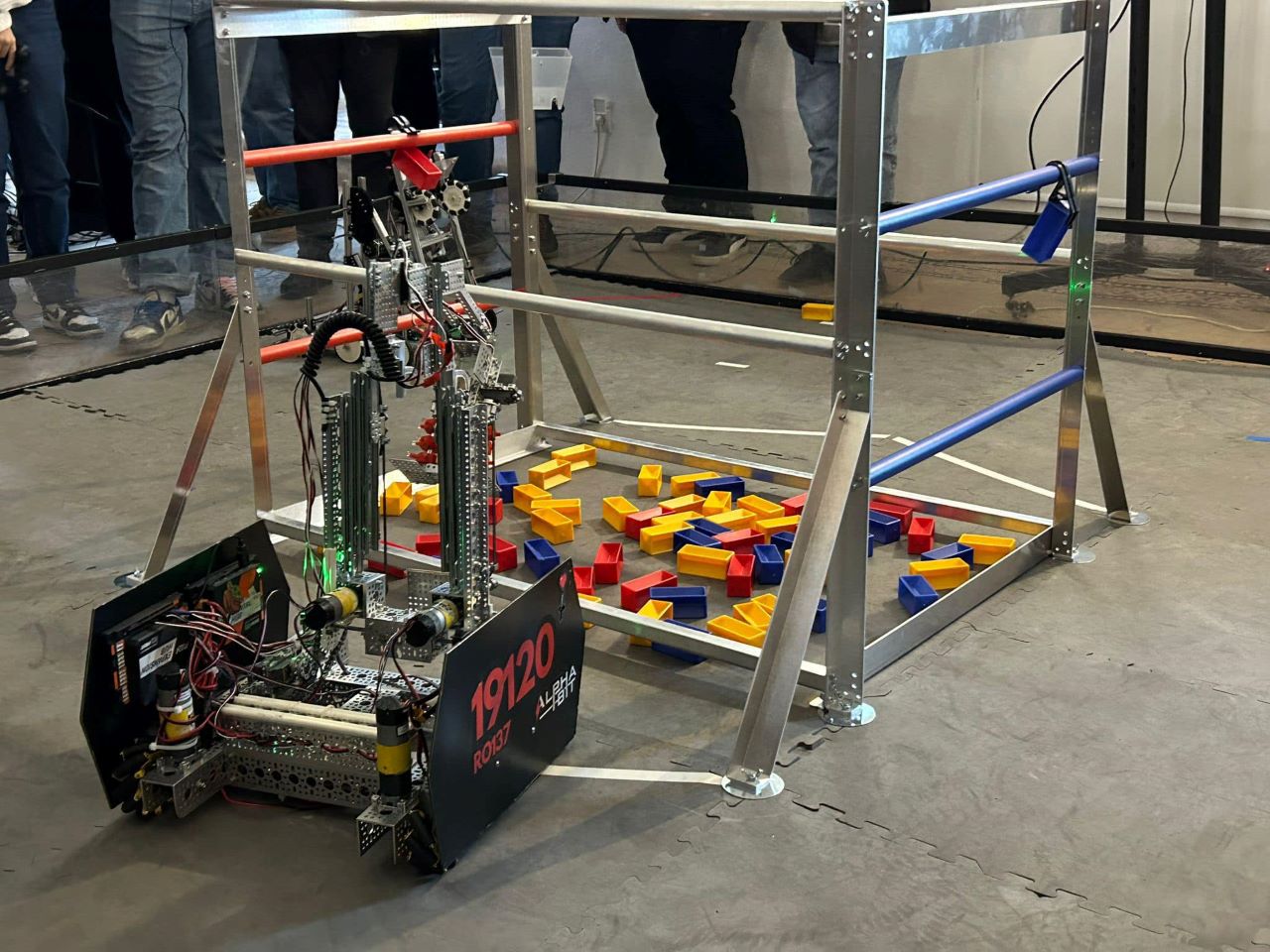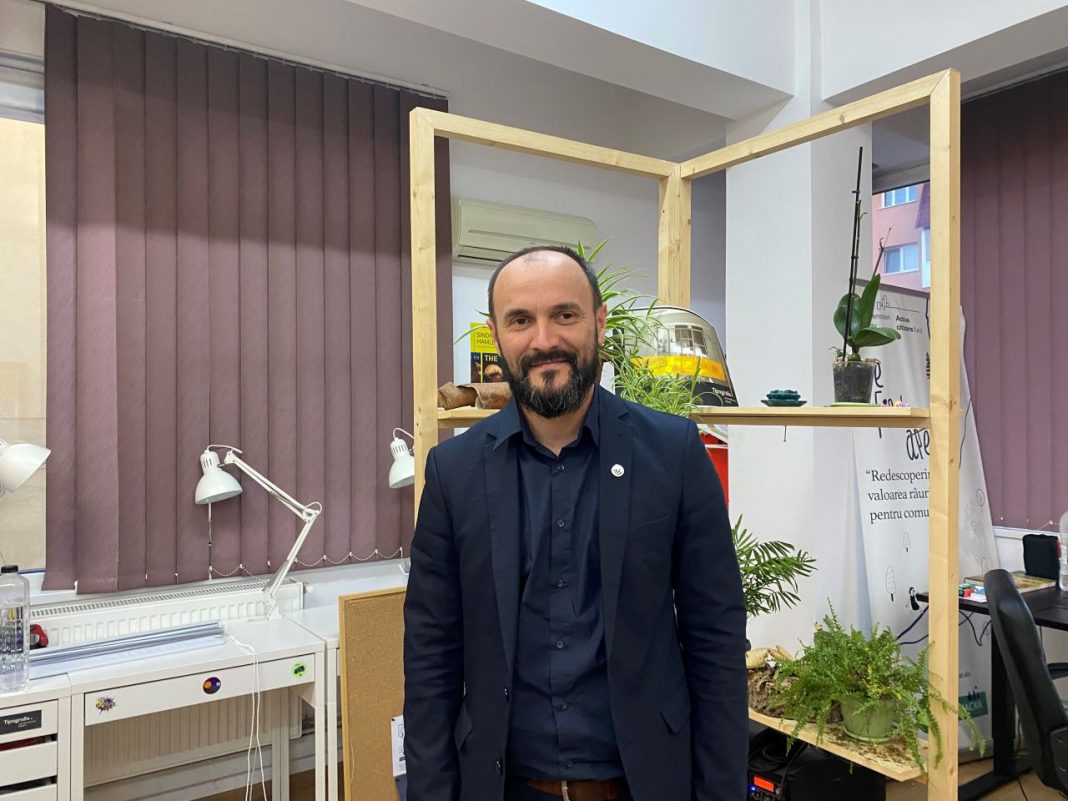Five decades after the peak of coal mining in the towns in the Jiu Valley of Romania’s Hunedoara County, that economic activity is reaching its final years. 14 mines and several factories are located in the coal basin, about 40 kilometers long, which includes the districts of Lonea, Petrila and Petroșani in the eastern part of the valley and Aninoasa, Vulcan, Lupeni and Uricani in the western part.
We visited some of the affected towns as well as a former mine and educational institutions to understand what the future holds after coal there.
The collapse of an industry
A turning point for the country’s industry was the so-called „Mineriada“ – a term used for each of the six consecutive violent political interventions by the Valley’s miners in Bucharest. The most severe of these occurred in 1990 and became a key event in Romanian history. Mass opposition protests by intellectuals, students and teachers against the new government established after the December 1989 revolution that overthrew communist dictator Nicolae Ceausescu were brutally suppressed. The protesters demanded the replacement of Communist-era officials and the appointment of people who had no part in the party.
Then-President Ion Iliescu called on the miners from the Jiu Valley, using them as armed militia, against the protesters in University Square. The resulting brutal repression left four people dead, two raped, and over 1,300 people illegally imprisoned. Images of the miners arriving in Bucharest by train, in their uniforms and helmets, beating people up, quickly replaced the idealized working-class image of the miners of communism.
Years later, Jiu experienced a huge economic shock that led to the restructuring of the industrial sector in the valley and the closure of most of the mines. Between 1997 and 1999, almost 20,000 miners lost their jobs out of a total of 45,000 employed. To avoid a social catastrophe, the authorities offered miners compensation of between 12 and 20 times their salaries, depending on their length of service, and many left of their own accord.
Currently, fewer than 2,000 people work in the four remaining coal mines in the Jiu Valley. Lonea and Lupeni, which are currently undergoing reclamation, will permanently cease operations in 2026, while Vulcan and Livezeni are due to close by 2032, according to the program established by the Romanian government.
For 150 years, the region has experienced periods of unprecedented growth and profound socio-economic crises. And while some locals still live with nostalgia for the golden age of mining, this activity is clearly nearing the end.
Alexandru Kelemen, executive director of the Association for Integrated Territorial Development of the Jiu Valley, says that actually, more than 70,000 people made their living thanks to the sector – because it is not just the miners, there are also other industries related to mining.
When the transition actually happened, it wasn’t just the miners who were affected, but the entire community. It’s an understatement to say that about the social and cultural life of the community itself because we were miners by definition and in fact our whole life – including sports, and culture – was directly related to mining.“
Life after coal
The mayor of Petroşani, Tiberiu Iacob-Ridzi, told us how important the mining sector was in Romania, adding, „but now that has changed.“

A large number of the mining industry workers have retired, albeit quite young – at 45 years old. Yet others have left, going to work abroad. Many of them have retrained in other fields, such as construction or something related to their previous profession. Ridzi gave the example of retraining in fields such as wind turbine installation, energy products and other activities in the sector.
On the other hand, keep in mind that many of them started small businesses. These European start-up programs helped them a lot and many of them who worked in the mine started their own small businesses,“ he added.
There is still no major investor in the area to absorb the large number of people who have left mining.
There’s nothing like Bosch or Volkswagen in the Jiu Valley yet. We’re putting the puzzle together in small pieces.“
To improve the environment, the six affected municipalities in the valley are uniting to work together for a just transition, and Ridzi describes this step as key. According to him, local authorities, businesses, unions and NGOs must speak the same language and work in the same direction.
It wasn’t easy to get everyone to the table. It’s a very difficult process because six municipalities have six different opinions. I was one of those who fought very hard to be present and be part of the solution.“
In 2022, the government approved the Strategy for the Development of the Jiu Valley until 2030. Coordinated by the Association for Integrated Territorial Development, it aims to improve the standard of living and create a healthy and sustainable environment with the help of funds from the European Union.

The mayor imagines a future of Petrosani that has new industries and services, as well as the development of year-round tourism, which he believes can and should be a very important component in the local economy.
And, of course, we need to emphasize the university environment as much as possible, which is a plus and a competitive advantage for us as a region.“
Electrical engineers Benone Croitor and Madalin Brandau work at the Livezeni mine. Both have completed the RenewAcad vocational training academy, which is funded by a European program. They told Economic.bg that they would prefer to focus on the green energy sector, but there are currently no opportunities in their region.
It’s one thing to work in mining, 500 meters underground, and it’s another thing to be high above the ground.“
They say that coal workers want change and accept it. However, for now, the opportunity to work in the green industry is far from their region and their families. They are sure that if new jobs from the sector appeared locally, they would quit the mines.
Robotics Valley
The legacy of the coal industry in the cities of the Jiu Valley is full of challenges for the young people there, but they have decided to find solutions now to have a better future. Education is one of the „lifeboats“ in the region – in Petroşani there is a university, which, as a successor to the Mining Institute. It trains specialists in all areas of activity specific to the mining industry, as well as in other industrial sectors, such as construction and transport. Lately, however, it has expanded its offer to include things like business and robotics programs.

The city also houses the „Mihai Eminescu“ Profiled High School with Intensive Romanian Language Studies – one of the elite high schools in the country.
Even at that level, young people have access to a robotics laboratory where they create their own robots, which they then test out in competitions against other teams.
In addition, the Association for Integrated Territorial Development supports and develops the Robotics Valley project. It was launched in 2019 and is currently running. It aims to be an innovative social enterprise, bringing together five robotics teams from the six affected coal regions in Jiu.
AlphaBit is Petrosani’s team, and it brings together several students and their mentors, who meet daily to work on developing their own robot, which is learning how to pick plastic pieces of a specific colour and place them in an indicated place. The team has already won a bunch of awards and it gets constantly renovated as new members come in and older ones graduate.

Photo: AlphaBit
Kelemen believes that this is one of the directions for the future of the Jiu Valley and the „Robotics Valley“ project is strategic and „we will do as much as possible for it.“
In fact, what we want to do is create a new future for the children of the Jiu Valley. And they have already done this without European funds, so it is actually our responsibility to support them. Our students, who operate their robots, are emerging as rising stars on the path of the Just Transition in the region.“
He defines „Robotics Valley“ as an honest project that comes from the heart.
The plans for the development of the project include the creation of a dedicated robotics education center, which will be housed in the former Petrila mine. The goal is to bring together teams from the valley, which can collaborate and organize workshops on hardware, software, 3D modeling, etc. The initiative is based on the experience of organizing 4 events dedicated to robotics in the Petrila mine premises. Through the „Robotics Valley“, the locals aim to transform the Jiu Valley into an ecosystem of opportunities for the young generations.
It all started as a beautiful dream and turned into a way of life. Thanks to the robot, we have acquired various skills that help us in our daily lives and will also help us in our future careers. In our team, we emphasize community a lot, which is why we always try to develop other people’s mindset as much as possible and lead our community towards change,“ say the AlphaBit team members.
As we were leaving the Jiu Valley, we felt that the traditional mining greeting: “Good luck!” was highly befitting to the situation as the region faces many challenges, but also opportunities. The locals believe that it is indeed the opportunities that will help create a new identity after coal, by opening the door to new types of industries and prosperities.
Co-Funded by the European Union. Views and opinions expressed are however those of the author(s) only and do not necessarily reflect those of the European Union or the Managing Authority. Neither the European Union nor the Managing Authority can be held responsible for them.
Translated by Tzvetozar Vincent Iolov
Източник: Economic.bg


